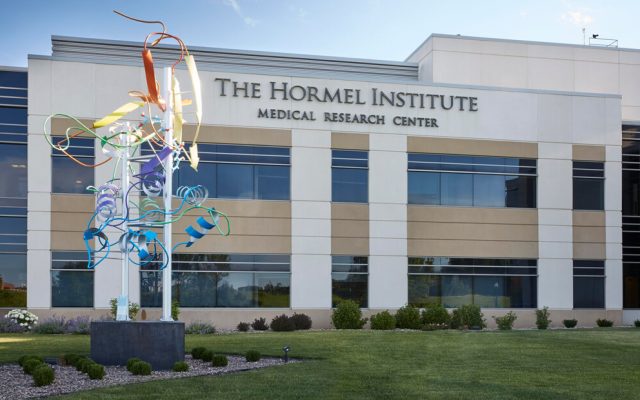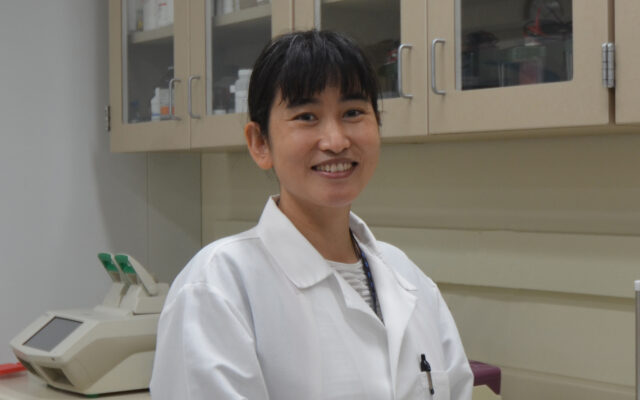Hormel Institute scientists publish research that could lead to treatment of severe disorder caused by COVID-19

A team of scientists led by Luke Hoeppner, PhD, Assistant Professor and leader of the Cancer Biology research section at The Hormel Institute, recently published an article titled “Suppressing STAT3 activity protects the endothelial barrier from VEGF-mediated vascular permeability” in the journal Disease Models & Mechanisms.

Dr. Luke Hoeppner
Proper blood vessel function is essential for maintaining good health. Blood vessels are responsible for distributing oxygenated blood to all tissues, returning deoxygenated blood to the lungs, and helping maintain balanced function among different types of cells throughout the body. During tissue injury or disease, blood vessels become leaky due to greater vascular permeability, which leads to fluid accumulation and tissue damage. This effect of increased vascular permeability can worsen the damage caused by heart attack, stroke, cancer, eye disorders, and acute lung injury.
Acute lung injury is among the most severe disorders caused by COVID-19. A symptom of acute lung injury is fluid accumulation in the lungs resulting from vascular permeability. Right now, there is no definitive treatment.
The researchers found that inhibiting STAT3 activity does not affect blood vessel formation or other functions of normal, healthy cells. They tested whether reducing STAT3 activity with drugs can decrease vascular permeability as a potential therapeutic strategy for diseases associated with abnormal increased leakage from blood vessels. The study showed that a new STAT inhibitor called pyrimethamine, which has been FDA approved to treat parasite diseases, substantially reduces vascular permeability.

Dr. Li Wang
This work was led by Dr. Li Wang, a postdoctoral fellow in Dr. Hoeppner’s research group, who served as first author on the article. She was featured in Disease Models & Mechanisms for a First Person Interview highlighting her achievements.
Dr. Hoeppner said furthering this research is crucial as we continue to navigate the COVID-19 pandemic.



